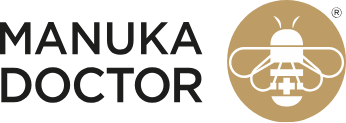
In the era of Covid-19, we’re all more aware than ever how important it is to look after ourselves. From washing your hands regularly to practising social distancing, there are must-do steps that may help reduce your risk of contracting coronavirus. You may also have read certain vitamins and minerals can play a role in helping your immune system – so which ones should you focus on and how do you get them into your diet? We’ve answered the most common questions to help you filter the truth from the myths.
Q. Which nutrients boost the immune system?
A. You can’t actually ‘boost’ your immune system – and even if you could, it wouldn’t be a good idea. Your immune system works hard to maintain a complex balance between protecting you from germs and tolerating the harmless things that shouldn’t cause a reaction. What you can and should do, though, is ensure you get a good spread of nutrients that support your immune system to function normally. The main nutrients you need to get into your diet include vitamins A, B6, B12, C and D, along with folate and minerals such as zinc, copper, iron and selenium1.
Q. So what foods should I eat?
A. Don’t focus too much on specific foods. This is more about making sure you eat a wide variety of nutritious foods to maintain a generally healthy diet, which supports your immune system and all your body’s functions2. Aim for at least five daily portions of fruit and vegetables, which can include frozen and tinned as well as fresh. Easy ways to hit your target include sprinkling chopped fruit onto porridge or cereal, snacking on dried fruit and throwing extra vegetables into stews, pasta sauces and curries. And always think variety – different coloured fruit and vegetables contain different nutrients so switching it up helps ensure you get a good spread. Your diet should also include some starchy carbs – preferably wholegrain – plus protein in the form of beans, pulses, lean meat or fish, some healthy oils such as olive oil, and some dairy (or a calcium-fortified vegan alternative)3.
Q. Should I take dietary supplements?
A. In an ideal world, you’d be getting all you need from the food you eat. But the reality is lots of us don’t manage to have a perfect diet, whether that’s because we’re too busy to prepare healthy food or because we’re on a restricted diet and missing out on certain food groups as a result. That’s where supplements come in. They don’t replace a balanced diet but they can help to top up with anything you may be missing out on.
Q. What dietary supplements should I take?
A. If you know your diet’s not all it could be, you could take a good multivitamin as insurance. Or you could focus on the nutrients that are most important for immunity. We should all be taking vitamin D from September through to March, when there isn’t enough sunlight for our bodies to make it. Vitamin C is known to support a number of vital immune system cells, and when you’re fighting off an infection, your body has a greater need for it, so that’s another nutrient to focus on4. Zinc is a powerful antioxidant with anti-inflammatory properties5. And selenium is another potently antioxidant mineral, needed for normal immune function. It’s found at high levels in foods including Brazil nuts, but many of us are deficient6. You can find vitamin C, vitamin D, zinc and selenium in Manuka Doctor’s Immune Boost dietary supplement. It also contains propolis, the sealant bees use in their hives, which is showing promise for immune support7, and ginger, traditionally used for tackling coughs and colds.
Q. What else do I need to know about supplements?
A. If you have a long-term condition, particularly if you’re taking medication, check with a healthcare professional before you start taking supplements, to make sure they’re safe for you. Take a multivit? if you add extra supplements on top of that, check the amounts on the labels, otherwise you may end up taking too much of some nutrients.
These statements have not been evaluated by the Food and Drug Administration. This product is not intended to diagnose, treat, cure or prevent any disease.
Sources:
1. https://www.bda.uk.com/resource/covid-19-corona-virus-advice-for-the-general-public.html
2. https://www.bda.uk.com/resource/covid-19-corona-virus-advice-for-the-general-public.html
3. https://www.bda.uk.com/resource/healthy-eating.html
4. Carr A C, Maggini S. Vitamin C and immune function. https://pubmed.ncbi.nlm.nih.gov/29099763/
5. Prasad AS. Zinc in human health: effect of zinc on immune cells. https://www.ncbi.nlm.nih.gov/pmc/articles/PMC2277319/
6. BDA. Selenium. https://www.bda.uk.com/uploads/assets/330c4d05-a2f0-4cbb-b6695612f9369d56/Practical-guide-nutritional-considerations-re-SELENIUM.pdf
7. Al Hariri M. Immune's-boosting agent: Immunomodulation potentials of propolis. https://www.ncbi.nlm.nih.gov/pmc/articles/PMC6335834/

